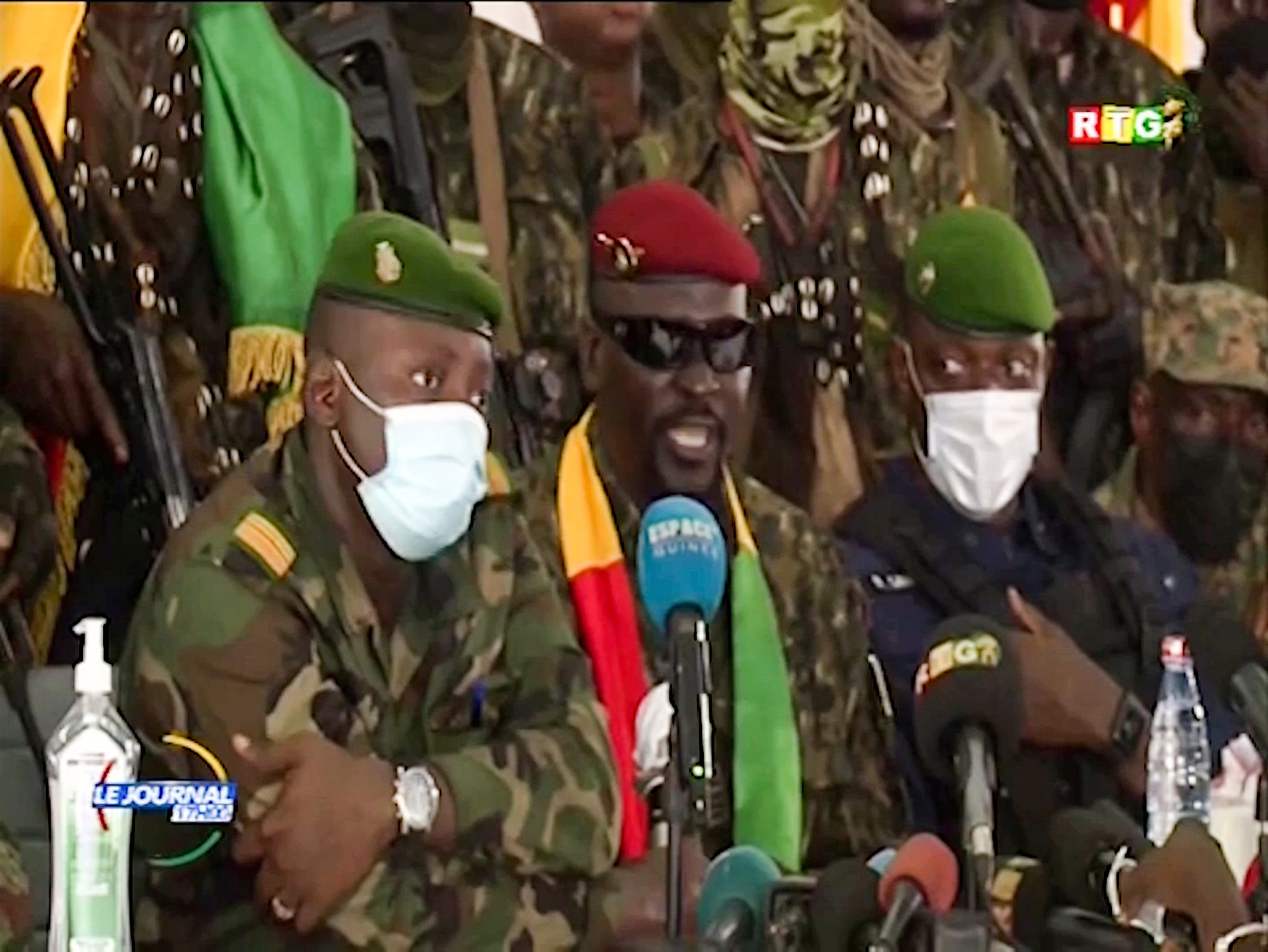Guinea junta releases dozens of political prisoners
Guinea’s new military rulers have released dozens of political prisoners jailed by the previous civilian government

Your support helps us to tell the story
From reproductive rights to climate change to Big Tech, The Independent is on the ground when the story is developing. Whether it's investigating the financials of Elon Musk's pro-Trump PAC or producing our latest documentary, 'The A Word', which shines a light on the American women fighting for reproductive rights, we know how important it is to parse out the facts from the messaging.
At such a critical moment in US history, we need reporters on the ground. Your donation allows us to keep sending journalists to speak to both sides of the story.
The Independent is trusted by Americans across the entire political spectrum. And unlike many other quality news outlets, we choose not to lock Americans out of our reporting and analysis with paywalls. We believe quality journalism should be available to everyone, paid for by those who can afford it.
Your support makes all the difference.Guinea's new military rulers have released dozens of political prisoners jailed by the previous civilian government, in a move likely to win them favor with the opposition that had protested against now-deposed President Alpha Conde.
The 79 prisoners freed late Tuesday had been held on a variety of charges, including breaching security, destroying public property and manufacturing weapons. All were invited to a political rally Saturday in the capital.
Many are activists from the Union of Democratic Forces of Guinea (UFDG), a longtime opposition party led by Cellou Dalein Diallo, who ran and lost to Conde in the last three presidential polls.
The prisoners' release was welcomed by Guineans who had demonstrated against Conde's quest for a third term in office last year. The gesture comes as the junta faces growing international pressure to release the deposed president and restore civilian rule.
Among those freed was Keamou Bogola Haba, opposition spokesman for the coalition of political parties that fought against Conde's bid to prolong his rule.
“We were imprisoned because of the third term and we leave with our heads held high because the third term has become impossible," he said. "No other Guinean will be able to do it again."
Conde, who already had served two terms, said last year that the constitutional term limits no longer applied after voters backed a referendum at his behest. The 83-year-old stood to potentially remain in power until 2030 until Sunday's military coup led by Col. Mamady Doumbouya.
The opposition has said it will work together with the junta but also urged the new military leadership to quickly restore the rule of law.
Conde remains in the custody of the junta, who have only said that he is in a secure location with access to medical care. The West African regional bloc known as ECOWAS has threatened economic sanctions against Guinea if he is not released.
A little over a year ago mutinous soldiers in neighboring Mali also overthrew their democratically elected president, Ibrahim Boubacar Keita ECOWAS eventually agreed to an 18-month transition back to civilian rule in Mali, though there are renewed concerns that the junta there will not meet the deadline for holding new elections.
On Tuesday, former Nigerian President Goodluck Jonathan headed to Bamako as the regional body's mediator. Gen. Francis Behanzin, ECOWAS' Commissioner for Political Affairs, Peace and Security, told reporters that the mission “appreciated the renewed expression of the transition’s authorities to respect the period of the transition, agreed before the international community.”
“However, the mission remains concerned about the lack of concrete actions in the effective preparation of the electoral process,” he said.
The recent coups in Guinea and Mali come after a long period without military power grabs, and many had hoped it was a sign that the era of armed takeovers was waning. Until last August, Mali's military had not carried out a coup since 2012, while the last military takeover in Guinea had been in 2008.
___
Larson reported from Dakar, Senegal